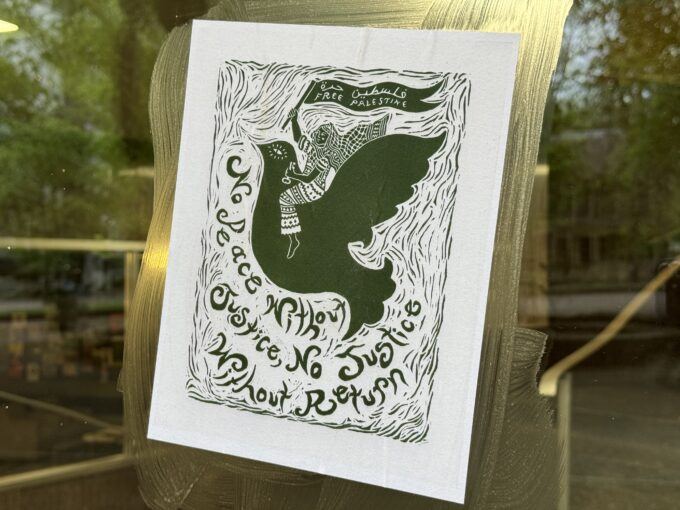by ANITA NAIDU

While the world debates whether Palestinians deserve electricity, young people in Gaza are building tech incubators from the rubble.
Not one. Three.
Taqat began with a single solar panel and a car battery. A flicker of light in a blackout zone. Today it is Gaza’s largest incubator: three hubs — Gaza City, Deir al-Balah, Nuseirat — sustaining more than 400 freelancers, creating over 100,000 hours of work each month, and keeping alive the possibility of a future Israel is determined to erase.
This is not “resilience.” This is refusal.
Empire’s Favorite Word
Western NGOs and donors love to say “resilience.” It is how they launder complicity. It is how they celebrate survival without ever naming the hand on the trigger.
But nothing about Taqat is resilience in that empty sense. Taqat is resistance. It is infrastructure under siege. It is solar panels standing in for a bombed-out grid. It is adolescents coding while their schools lie in rubble. It is Gaza insisting: we will not disappear.
What They Built While the World Looked Away
The numbers themselves are an indictment:
$500,000+ in monthly earnings by Gaza freelancers.
100,000+ hours of digital work produced every month.
50+ new jobs created.
2,000 people on a waitlist, desperate to join.
All of this in a place where:
80% of the population is unemployed.
1.9 million people are living in tents.
70% of the internet and power grid lies in ruins.
The same governments that subsidize Silicon Valley’s failure machines subsidize Israel’s war machine. One burns capital on apps nobody needs. The other burns people. Gaza’s youth are showing them both what innovation actually looks like.
Brick by Brick
Taqat’s timeline is the anatomy of defiance:
June 2024 — one solar panel. One battery. A single shared desk.
September 2024 — expansion into a second hub as more than a million people were displaced south.
December 2024 — training programs scaled to hundreds of youth.
February 2025 — a third branch opened.
Now — Gaza’s foremost incubator, with over 500 active members and an ecosystem of training, mentorship, and global work opportunities.
“For us, Taqat symbolizes perseverance and resistance in turning challenges into opportunities, and remaining creative despite all circumstances. It is an expression of dignity through work, productivity, and building a better future,” said Noor Nashwan, International Relations Coordinator at Taqat.
This article is part of an ongoing collaboration with Taqat, who first reached out to me — and I take seriously the responsibility of carrying their story with care, though their determination to keep building under siege speaks louder than any words of mine.
Where the occupation drops bombs, Palestinians drop fiber cables. Where schools collapse, adolescents join Taqat Hero— a program teaching coding, design, and digital arts to teenagers who have lost years of education but refuse to lose their futures.
Even Cambridge University is collaborating, offering English training and mentorship. The irony is brutal: students in Britain are shielded from the word Palestine, while students in Gaza are denied schools altogether. And yet, it is Gazan teenagers who are the ones coding their way into the world.
Counterpunch for more
